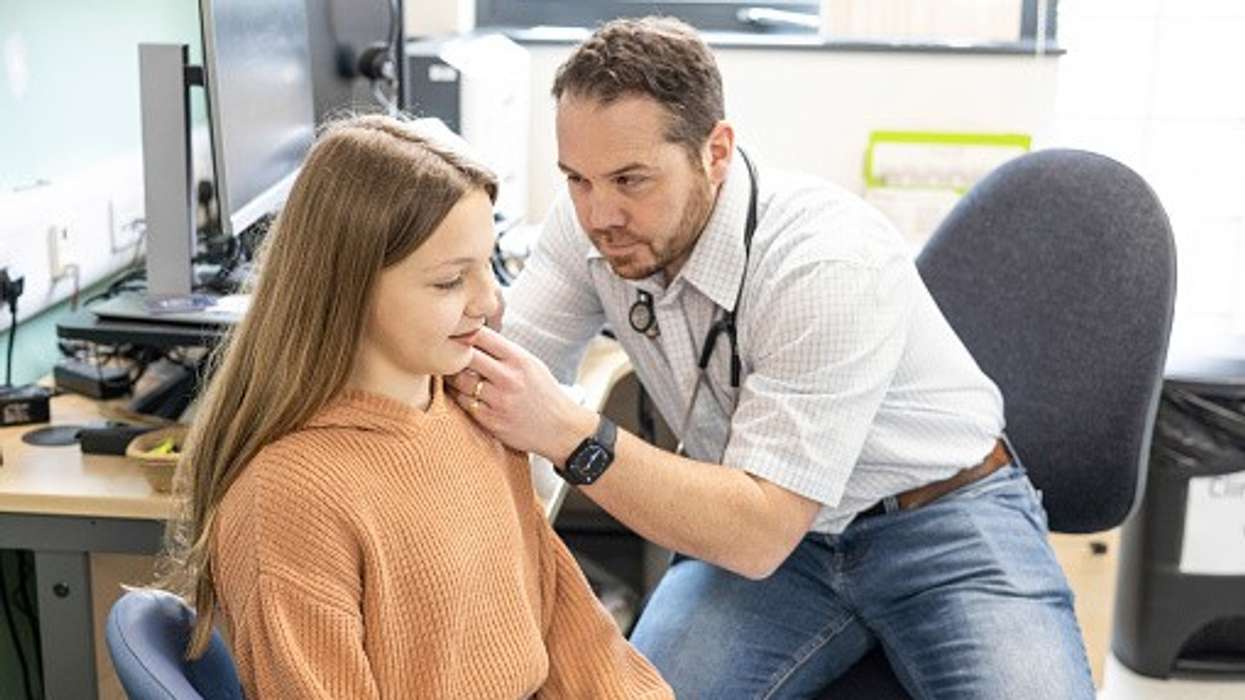Farah Ali says for suffers of various pain symptoms community pharmacists are much more than just dispensers of painkillers…
In the earliest weeks of the first nation-wide lockdown, primary care settings in the UK were forced to grapple with issues they never dealt with before. GP surgeries were badly affected, with many having to close their doors to all but the most urgent of cases, sensibly opting instead for telephone and video consultations. This, combined with patient concerns about Covid-19 contraction, saw a 27 per cent drop in GP appointments compared with the same time in 2019.
During this time, community pharmacy stepped up its’ role as the frontline of primary care in England. Throughout the crisis, community pharmacies have operated with the least disruption to the community of any primary healthcare setting. Our doors have remained open, with colleagues continuing to commit to providing patients with self-care and medication advice.
For the majority of us (62 per cent) who have complained of some form of body pain in 2020, or for the two fifths of the UK population that are impacted by chronic pain, this accessibility during the crisis has been a lifeline. Given the commonality of pain and how debilitating and life-affecting it can be, it is to be expected that a significant proportion of patients visiting pharmacies will be looking for support with pain management.
At Warman-Freed, Perrigo’s Learning Pharmacy, we’ve spoken to a high volume of patients during the Covid-19 pandemic, who have experienced pain symptoms that they otherwise might have spoken to a GP about. Similarly, with the roll-out of the community pharmacy consultation service (CPCS) this autumn, we are expecting to see more referrals from GPs for patients experiencing pain.
As pharmacists we have a duty to continue communicating our expertise on the topic to patients and to make it known that community pharmacists are much more than just distributors of pain medications. To support this, it’s essential we’re fully utilising training materials available to us – for example those specially designed by product manufacturers like Perrigo – to ensure we’re able to instil confidence in our abilities, and help foster all-important patient trust.
As patients are increasingly understanding the role of pharmacists and utilising our expertise more frequently, now is the time to capitalise. Covid-19 and the CPCS have and will hopefully continue to be catalysts for a change in patients’ perceptions but there is more to be done.
Pharmacies up and down the country are in a unique position to serve as the first point of contact for pain patients looking to gain relief and understanding of their ailment. We can give patients clear, expert advice – directing them to the right medications, outlining available support groups and patient bodies or referring them to their GP where necessary.
On occasions where patients have found home remedies or off the-shelf painkillers ineffective in combating moderate to severe pain, pharmacists can look to advise on a range of pharmacy-only pain relief options.
It’s important to ensure that the right level of pain relief can be recommended depending on customers’ specific needs. In the first instance, pharmacists should ask questions about the type of pain, its severity and what painkillers have been tried already before referring to the NICE step-wise guidance to signpost patients to the most appropriate method of self-care.
In cases where the pain is considered severe, a recommendation may be to suggest an over-the-counter codeine-based product, as per NICE guidelines. As one of the potential options, codeine-based pain products available without prescription are designed to provide effective symptomatic relief for people suffering from short-term moderate pain.
Considering and anticipating the knock-on effects of pain for patients is also vital. Many patients struggling with pain also suffer from sleep deprivation, which in turn can make pain worse. A good night’s sleep is therefore a vital part of any pain treatment plan.
As pharmacists, we can support customers with tips to manage, treat and prevent sleep problems by recommending a good bedtime routine and addressing unhealthy sleeping habits. Pharmacists can also recommend over-the-counter sleep aids, where appropriate.
Similarly, debilitating pain can have profound and negative impacts on patients’ mental health. Research has shown that using meditation or mindfulness practices as a pain management technique can be effective.
Asking patients to concentrate on their breathing could help them to overcome some of the most unpleasant aspects of pain, such as shortness of breath, dizziness and panic. Likewise, exercise, thought distraction and other stress reducing measures could be helpful when trying to suppress the impact of pain on day-to-day life.
Finally, and most importantly, where a pain patient comes to pharmacy in the first instance, we are well placed to give a recommendation if and when they should speak to their GP. Long term pain, including arthritis, back problems, old injuries or nerve damage, has many causes, and could also be a sign of an underlying problem. If a patient has been struggling with pain for more than 12 weeks, NHS guidance recommends that they should consult a GP.
As the UK healthcare system continues to learn from its response to Covid-19, and as patients look more towards self-care, pharmacies have to put themselves forward as a first port of call for patients worried about or struggling with pain.
At Perrigo’s Warman-Freed Learning Pharmacy, we believe pharmacy is an integral part of the self-care landscape, and we need to do all we can to support patients with effectively managing their pain needs wherever possible. With the resource, expertise and accessibility to pharmacy-strength pain relief medication to handle many pain cases, we can help alleviate much of the stress on the NHS’s resource and finances.
Farah Ali is superintendent pharmacist and general manager at Perrigo’s Warman-Freed Learning Pharmacy.
This feature also appears in the November issue of Pharmacy Business.











